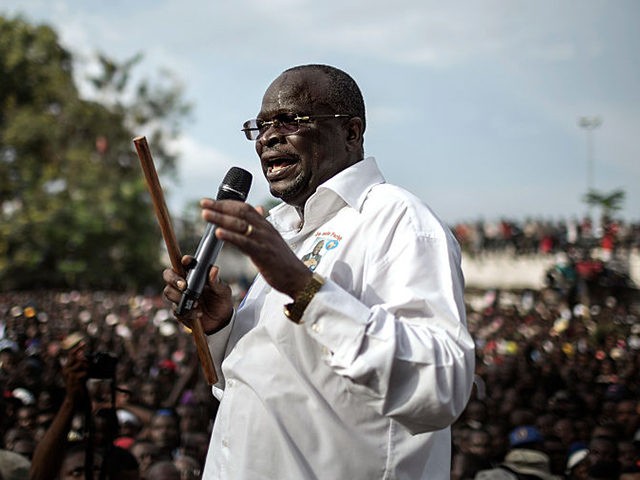Republic of Congo opposition leader Guy-Bryce Parfait Kolelas died Sunday, the same day the African nation held general elections in which Kolelas was a candidate.
Kolelas died on March 21 while being evacuated from a hospital in the Republic of Congo to a medical facility in France. He had been admitted to a hospital on March 20 after falling seriously ill with symptoms of the Chinese coronavirus, which he tested positive for on March 19. Kolelas “died in the medical aircraft which came to get him from Brazzaville [Republic of Congo] on Sunday afternoon,” according to his campaign director, Christian Cyr Rodrigue Mayanda.
“A video published on social media showed 61-year-old Kolelas, who was diabetic, appearing very weak,” Radio France Internationale (RFI) reported on March 22. The opposition leader is seen in the video clip removing an oxygen mask from his face to communicate a message to his supporters.
“I am in trouble. I am fighting death,” Kolelas said. “However, I ask you to stand up and vote for change. I would not have fought for nothing.” He added the Republic of Congo’s latest general election was “about the future of your children.”
Kolelas was one of six opposition candidates running against incumbent Denis Sassou-Nguesso, who has been the president of the Republic of Congo since 1997. Nguesso, 77, also served as the country’s president from 1979-1992.
“He [Kolelas] was runner-up to Nguesso in the 2016 presidential election, gaining around 15 percent of the vote, and was widely seen as Nguesso’s main political rival” in this year’s polls, RFI noted Monday.
Nguesso was re-elected president of the Republic of Congo on Tuesday with 88.57 percent of the vote, the country’s interior minister, Raymond Zephirin Mboulou, announced on state television on March 23. Nguesso will now start a new, five-year term as president. Guy Brice Parfait Kolelas received 7.84 percent of votes on Sunday, while opposition candidate Mathias Dzon won just 1.9 percent of the vote, according to the state government’s official tally.
Internet Without Borders, along with 49 other organizations, accused Nguesso of shutting down the internet in the Republic of Congo on the day of general election voting, March 21. The allegations prompted the Republic of Congo’s Catholic Church to issue a statement in which it expressed “serious reservations” about the general election’s transparency. The country’s largest opposition group, the Pan-African Union for Social Democracy, boycotted the election in protest of the internet blackout.

COMMENTS
Please let us know if you're having issues with commenting.